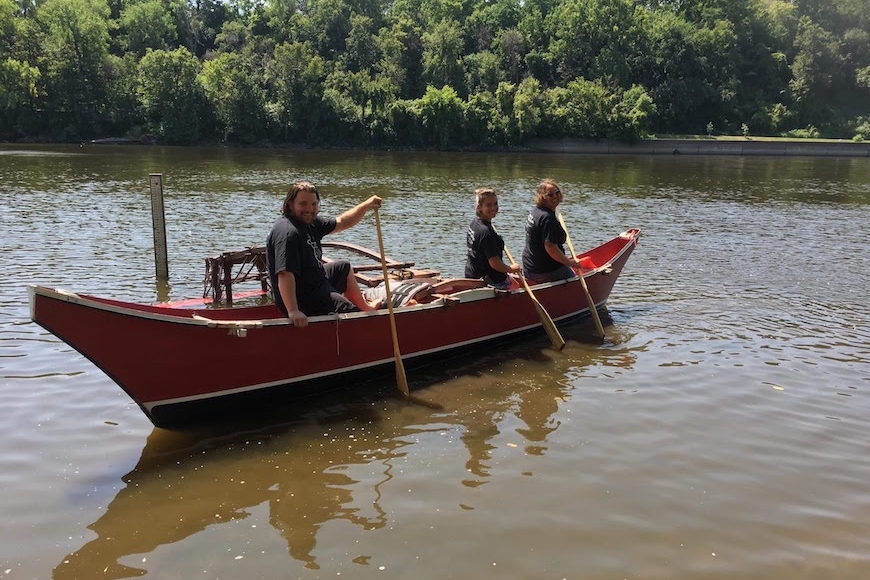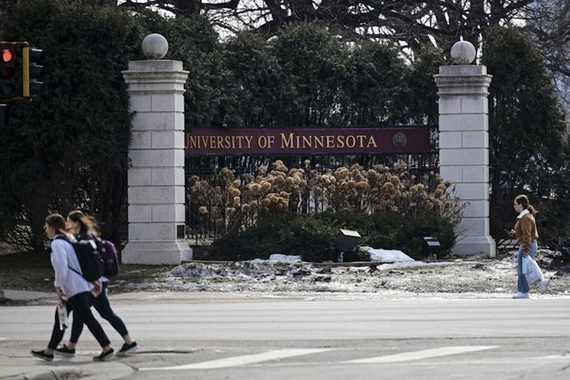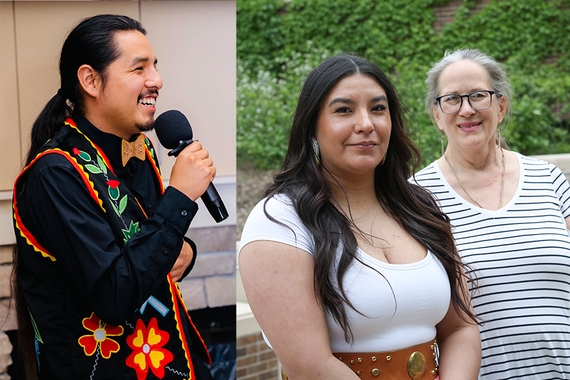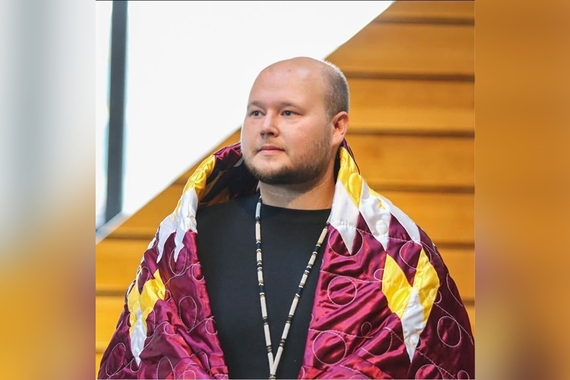Canoe Rising: Paddling Cloudy Waters
Home to 11,842 lakes, Minnesota’s identity is tethered to its geography. “Minnesota” comes from the Dakota word “Mni Sota Makoce,” which translates to “the land of cloudy waters.” The historical relationship between the Dakota people and Minnesota’s waterways is extensive, and lasting navigation practices are being taught and shared on the University of Minnesota Twin Cities campus.
Canoe Rising was founded in 2018 by five students after they took American Indian Environmental Issues and Ecological Perspectives with Professor Vicente Diaz. Undergraduates Jacob Bernier, Chrissy Pettit, Kaytlyn Lundstrom, Gabriela Ines Diaz, and Olivia Stout created the student group because of the interest Diaz’s course sparked about Native canoes and water traditions. Together, the five kickstarted an all-inclusive club rooted in a desire to learn about and serve Minnesota’s lakes.
Understanding Our Waters
Since its creation, Canoe Rising has grown to include 19 active members, five officers, and two faculty advisors. Canoe Rising’s primary activities range from canoeing excursions to paddle-making workshops and lectures.
Although every officer holds their own respective title and manages different aspects of the group, the decision-making process is collaborative. Ensuring that all voices are heard is paramount to the founders, which is why they are working with both Native and non-native people. In future years, and with upcoming projects, Canoe Rising hopes to get Native youth and locals involved and excited about their work. Keeping the group open allows community members to also find a connection with Minnesota’s water and land while recognizing that they are on Dakota and Ojibwe land.
With a goal to build relationships with community members while broadening the understanding of the waters that surround us, Canoe Rising has participated in canoeing trips on bodies of water such as Bde Maka Ska and the Mississippi River. Last October, the group partnered with the Minnesota Historical Society to teach Indigenous youth how to paddle a Micronesian outrigger canoe. Outrigger canoes are characterized by their one or more lateral support floats that are attached to one or both sides of the main hull. These canoes credit their stability to the distance between its hulls, and usually sit six passengers. The Indigenous youth took and developed photographs of the Micronesian outrigger canoe and debuted them at the Two Rivers Gallery in Minneapolis. This project taught attendees how to operate the canoes and provided them an opportunity to interact with Native college students. Facilitating relationships between Native youth and Native college students informs the youth of the opportunities available to them at the University, perhaps even helping them see themselves as future college students.
NAISA Conference
From June 26-29, the University of Waikato is hosting the 2019 Native American and Indian Studies Association (NAISA) conference in New Zealand. Canoe Rising will travel to New Zealand and attend the four-day conference. NAISA is the largest scholarly organization devoted to Indigenous studies and the conference is an opportunity for staff and students from Indigenous studies and other disciplines to interact.
Canoe Rising’s attending officers will participate in roundtables and deeper conversations about canoe revitalization. They will articulate the work that they are doing with canoes and their future goals. To this effect, Canoe Rising will serve as an example to other attendees on how undergraduates can come together to form an inclusive club that is anchored in Indigenous practices and spreads Native values.
Grateful for the Land
The Department of American Indian Studies at the University of Minnesota was the first autonomous department dedicated to Indigenous studies, and works to incorporate comparative and global Indigenous perspectives. Drawn to the University because of its focus on global perspectives, Gabriela Ines Diaz is a Pacific Islander student from Guam. Her involvement in Canoe Rising has helped her get in touch with other Pacific Islanders and Indigenous people on campus. Pacific Islanders, like the Dakota, have a strong connection to the water, and Ines Diaz has connected with Dakota and Ojibwe students at the University over shared values and practices.
“We are working on the connection to water and land among a variety of communities globally,” says Pettit. “We have Dakota, Ojibwe, and Micronesian communities that have come together and found a common passion for sharing water traditions here in Mni Sota Makoce.”
Maintaining gratitude for the land that sustains us is crucial, and Canoe Rising does everything with respect for the waters they interact with. For the group, the meaning of their work extends beyond the joys of being on the water. Canoeing requires patience and trust in both the process and each other.
Canoe Rising has grown dramatically in the short amount of time since its founding. It has become a space for learning and an acknowledgment of current Indigenous environmental issues. The group nurtures relationships and encourages a positive outlook and passion for being informed.
This story was written by an undergraduate student in CLAgency. Meet the team.



